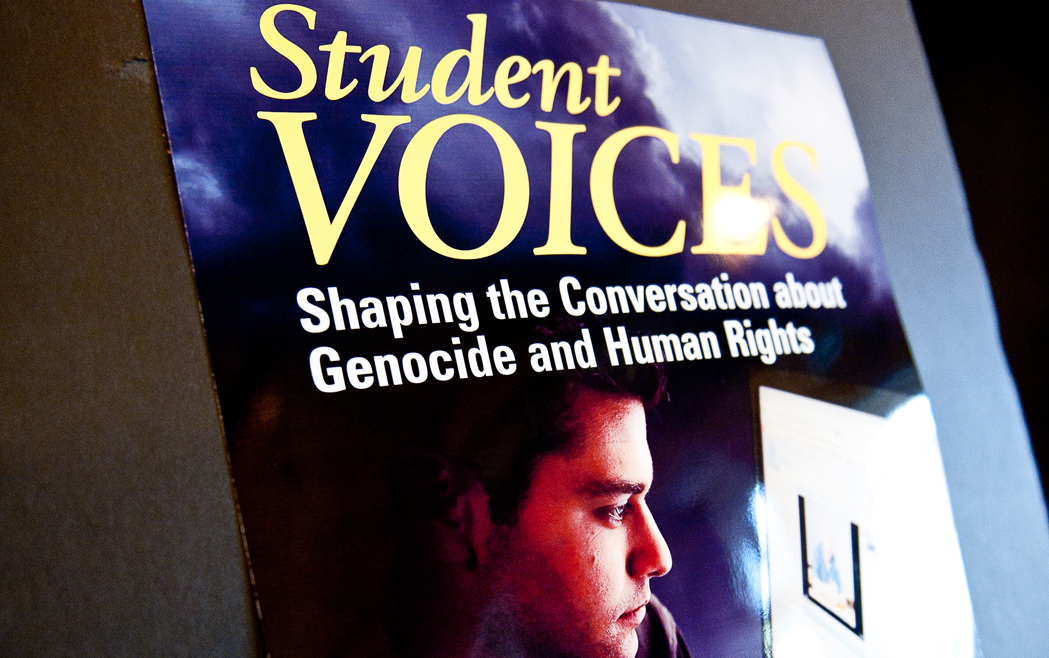Three Workshops Offered This Saturday for Student Voices Participants

USC students who have entered this year’s Student Voices Short Film Contest can learn everything they need to know about making and editing films using testimony at a series of three workshops this Saturday.
The program begins at noon with a short “Editing and the VHA” workshop led by USC Shoah Foundation project specialist Kia Hays, which will give an overview of the Visual History Archive.
At 12:30 p.m., DJ Johnson, Assistant Professor of Cinema Practice in the Media Arts + Practice Division at the USC School of Cinematic Arts, will lead a workshop titled “Ethical Editing II.” The workshop will cover guidelines and practices for students to follow when incorporating testimony into their original films. A light lunch will be served at 1:30 p.m.
Last year’s Student Voices winner, Cecilia DeJesus, will lead the final workshop of the day at 2 p.m., “The Filmmaking Process: A Presentation with the 2013 Student Voices Winner.” DeJesus’s film Where Is My Home? uses sand animation to tell the story of Czech Holocaust survivor Vera Gissing.
All workshops will be held in Leavey Library, Learning Room A.
The Student Voices Short Film Contest is open to all USC graduate and undergraduate students, regardless of major. Students are invited to create original short films, 7-10 minutes long, that incorporate testimony from USC Shoah Foundation’s Visual History Archive. The films must be inspired by one of this year’s three themes: Preserving Humanity: Assistance and Resistance; Renewing Rwanda: The Genocide and After; and Risking Everything: Ordinary People, Extraordinary Actions.
The videos will be judged by a jury of USC faculty and special guests. Winners will receive prizes of up to $750 and their films will be presented at a screening and discussion on campus and at the USC Shoah Foundation’s annual gala in spring 2014. They will also receive certificates signed by Steven Spielberg.
The Visual History Archive contains 52,000 testimonies of survivors and witnesses of the Holocaust and other genocides. The testimonies were conducted in 57 countries and in 33 languages.